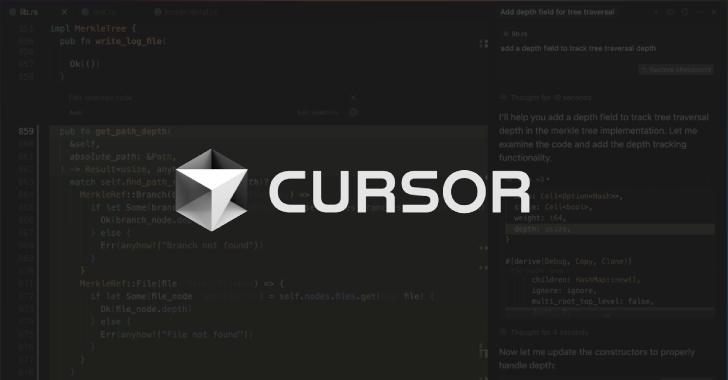
vCIO: Strategic Decision-Making in a Data-Driven Enterprise
In an era where data reigns supreme, businesses are constantly seeking innovative ways to leverage information for strategic decision-making. One such innovation that has gained prominence in recent years is the concept of the Virtual Chief Information Officer, or vCIO. This role has become increasingly vital in guiding data-driven enterprises towards success. In this article, we will explore the significance of the vCIO and how they contribute to strategic decision-making in the modern business landscape.
The Rise of Data-Driven Enterprises
Before delving into the role of a vCIO, it’s essential to understand the context in which they operate. Data has become the lifeblood of contemporary businesses. It’s generated from various sources, such as customer interactions, supply chain operations, and internal processes. To thrive in today’s competitive landscape, organizations must transform this raw data into actionable insights.
Data-driven decision-making is not a novel concept, but its importance has grown exponentially in recent years. Companies that harness the power of data can gain a competitive edge, optimize operations, enhance customer experiences, and identify new growth opportunities. However, the sheer volume and complexity of data pose significant challenges. This is where a vCIO steps in.
What is a vCIO?
A vCIO is not a traditional Chief Information Officer (CIO) who is a full-time, on-site executive responsible for an organization’s IT strategy. Instead, a vCIO is a virtual or outsourced role that provides strategic IT leadership and guidance on a part-time or project basis. They bring a wealth of knowledge and expertise in technology and data management to the table, without the high cost of a full-time executive.
The primary role of a vCIO is to align an organization’s technology and data initiatives with its overall business goals. They serve as a bridge between the technical and non-technical aspects of a company, ensuring that technology investments and data strategies are in sync with the company’s strategic vision.
Why Businesses Need a vCIO
- Cost-Efficiency: One of the most significant advantages of hiring a vCIO is cost-efficiency. Small and mid-sized businesses often lack the resources to employ a full-time CIO. A vCIO allows them to access top-tier expertise without the associated high salary and benefits costs.
- Strategic Focus: vCIOs are focused on strategy. They don’t get bogged down in day-to-day IT operations. This allows them to concentrate on long-term planning, ensuring that technology investments are aligned with the company’s objectives.
- Flexibility: Businesses can engage a vCIO on an as-needed basis. Whether it’s for a specific project, strategy development, or ongoing guidance, organizations have the flexibility to tailor the vCIO’s role to their requirements.
The vCIO’s Role in Data-Driven Decision-Making
Now, let’s explore how a vCIO contributes to strategic decision-making in a data-driven enterprise:
- Data Strategy Development
A vCIO plays a crucial role in developing a comprehensive data strategy. This involves identifying data sources, establishing data governance policies, and defining key performance indicators (KPIs). They ensure that the data collected aligns with the organization’s strategic goals, enabling more informed decision-making.
- Technology Assessment and Implementation
Selecting the right technology stack is paramount in data-driven decision-making. A vCIO evaluates existing systems, recommends upgrades or replacements, and ensures that technology investments support data collection, storage, and analysis needs.
- Data Security and Compliance
Data security and compliance are non-negotiable in today’s business landscape. A vCIO is responsible for developing and implementing robust security measures to protect sensitive data and ensuring that the organization complies with relevant regulations such as GDPR or HIPAA.
- Data Analytics and Insights
A vCIO oversees the implementation of analytics tools and platforms. They work with data scientists and analysts to derive actionable insights from data, helping the organization make informed decisions in real-time.
- Scalability and Flexibility
As a business grows, its data needs evolve. A vCIO ensures that data infrastructure and technology can scale seamlessly to accommodate growth. They also promote flexibility, enabling the organization to adapt to changing market conditions and business requirements.
- Risk Management
Data-driven decision-making carries inherent risks, such as data breaches or inaccurate analyses. A vCIO assesses and manages these risks, developing contingency plans and mitigation strategies to minimize potential harm to the organization.
Case Study: vCIO in Action
To illustrate the impact of a vCIO, let’s look at a hypothetical scenario. Imagine a medium-sized e-commerce company that wants to enhance its customer experience through data-driven decision-making.
The vCIO, in collaboration with the management team, first identifies the company’s strategic objectives: improving user engagement, increasing conversion rates, and reducing cart abandonment. They then work on the following:
- Data Collection: The vCIO recommends implementing advanced tracking tools to gather user behavior data, including website clicks, page views, and purchase history.
- Data Analytics: Data scientists are hired to analyze the collected data. They uncover patterns and identify pain points in the user journey that contribute to cart abandonment.
- Technology Optimization: The vCIO identifies bottlenecks in the e-commerce platform and recommends performance improvements to ensure a seamless shopping experience.
- Personalization: Using customer data, the vCIO helps implement personalized recommendations and email campaigns, increasing user engagement and conversion rates.
- Security: Robust security measures are put in place to protect customer data, ensuring compliance with data privacy regulations.
Within a year, the e-commerce company sees a significant increase in sales, reduced cart abandonment rates, and improved customer satisfaction. These outcomes were made possible by data-driven decision-making guided by the vCIO.
The Future of vCIOs
As businesses continue to evolve in the data-driven landscape, the role of the vCIO will become even more crucial. The democratization of data analytics tools and the increasing complexity of data security and compliance regulations mean that organizations need expert guidance.
Moreover, the remote and flexible nature of the vCIO role fits well with the changing dynamics of the modern workplace, where remote and hybrid work arrangements are becoming the norm.
In conclusion, the vCIO is the linchpin that connects technology, data, and business strategy in the digital age. Their ability to provide cost-effective, strategic guidance makes them an invaluable asset for any organization seeking to thrive in the data-driven enterprise landscape. Whether it’s harnessing the power of big data, enhancing customer experiences, or optimizing operations, the vCIO plays a pivotal role in shaping the future of successful businesses.
Contact Cyber Defense Advisors to learn more about our Virtual Chief Information Officer (vCIO) solutions.





